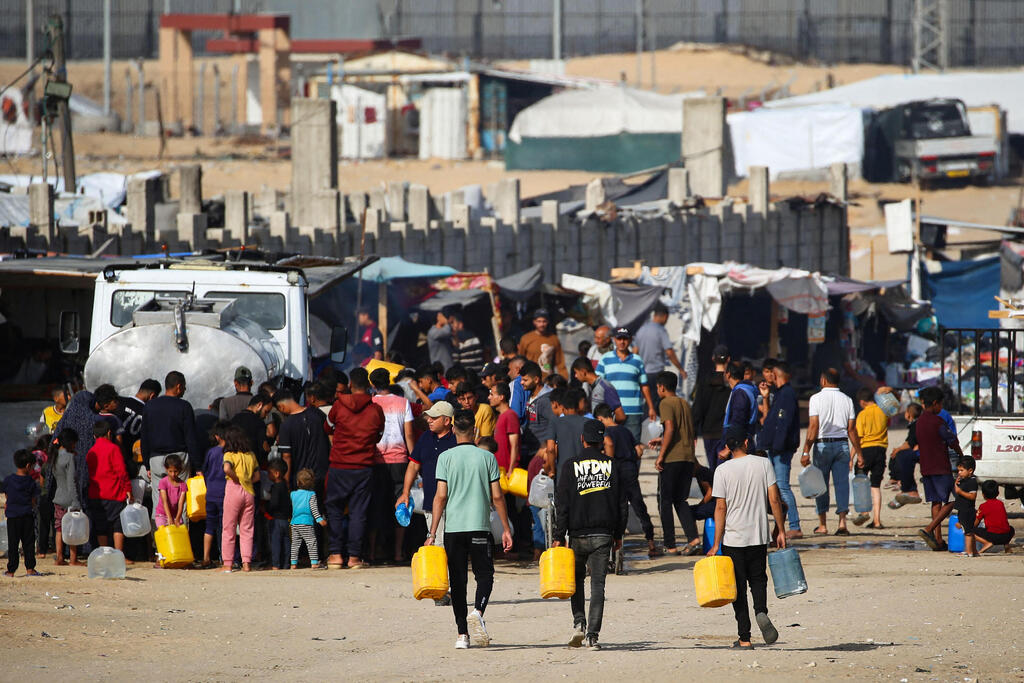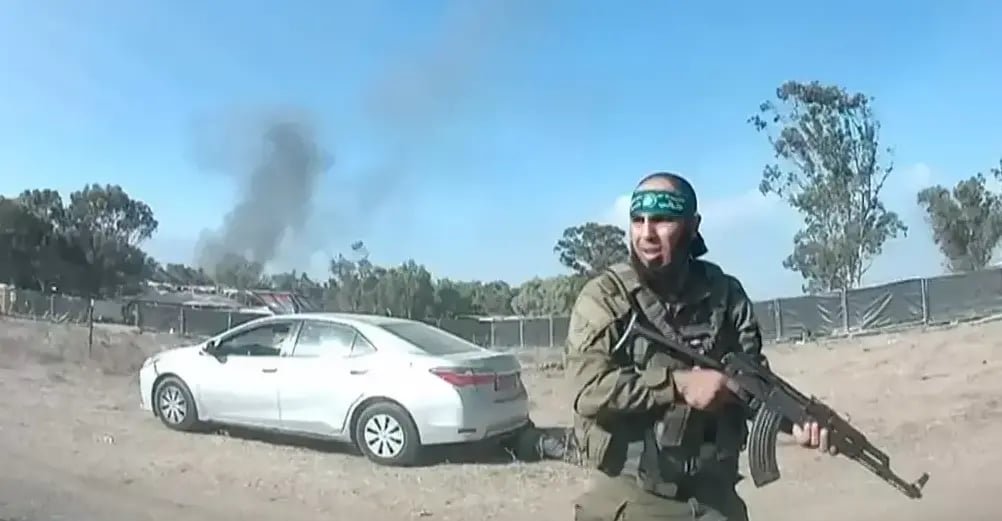Getting your Trinity Audio player ready...
Nakba Day, observed on May 15, was portrayed this year by many Palestinians as an unending loop of their historical plight marked by displacement, refuge, casualties and ruin. Some even argued that the current Gaza campaign represents a greater Nakba, eclipsing the original 1948 catastrophe in terms of damage inflicted on Palestinians.
However, the parallels between past and present also cast numerous "shadows" that Palestinians often overlook, chief among them being the absence of national leadership. In 1948, the leadership was the first to flee; today, it hides underground, disconnected from public discourse. Moreover, there remains a persistent gap in having a coherent national agenda and realistic goals, often replaced by illusions and slogans. Consequently, refugee camps continue to symbolize the Palestinian fate, now with the added spectacle of aid trucks and crowds chasing after parcels dropped from planes.
The inclination toward victimhood, complete dependency on the international community, and evasion of responsibility and self-criticism have supplanted a viable national strategy and replaced a coherent and actionable national strategy. Palestinians describe a tragic historical cycle imposed upon them, yet they avoid acknowledging that this cycle results from strategic choices made by both the public and their leaders. Within this framework, there's a notable refusal to recognize the connection between cause and effect (such as the opposition to the 1947 partition plan and the massacre on October 7 that triggered the current war). Instead, there is a persistent portrayal of Palestinians as eternal victims and Israel as the "absolute evil." This narrative persists while avoiding introspection and adopting passivity and fatalism in the face of disasters resulting from national decisions.
Seventy-six years after the 1948 Nakba, there exists a Palestinian national identity, but a significant question lingers regarding the existence of a Palestinian civil society. This collective has not yet protested the unprecedented disaster inflicted upon it by Hamas, and large parts of it, as indicated by Palestinian public opinion polls, support the October 7 attack, back Hamas, and refuse to believe Palestinians committed war crimes. This reflects a long-standing dichotomy: glorifying violent attacks often cloaked in heroic terms of "resistance" and "steadfastness," while simultaneously retreating into victimhood.
3 View gallery


Police clashing with Palestinians in Nablus during the first Intifada
(Photo: Archive )
Paradoxically, the strength of the Palestinian national movement outside the Palestinian arena today is greater than that between the Jordan River and the Mediterranean Sea. From the support demonstrations on campuses emerges what is essentially the world's first virtual national movement, symbolizing Generation Z culture. Supporters of the Palestinian struggle adhere to general slogans, identity politics and fashion statements like the watermelon symbol and wearing a keffiyeh, with minimal complexity and knowledge. These elements, such as understanding Hamas' anti-liberal nature or recognizing the corruption and political repression characterizing the current Palestinian system, are often overlooked.
The war in Gaza has resurfaced memories of the Holocaust and Nakba from the collective consciousness of both communities, alongside unprecedented suspicion and hostility. In such a context, hoping for reconciliation seems unrealistic. The difficulty of fostering a productive dialogue between a community specializing in self-flagellation and one that largely refuses to acknowledge the suffering of "the other" and the capacity of its members to commit war crimes becomes evident. It is a dialogue between a society adhering to a monolithic and dichotomous narrative of battle between angels and demons and another where self-criticism and protests against leadership, even during wars, are at least somewhat ubiquitous.
The events of the past week in Rafah illustrate the described gap. The severe harm to Palestinian civilians, apparently caused by an explosion of Hamas ammunition rather than an IDF strike, was extensively reported in Israel, and a thorough investigation is underway. Hamas, on the other hand, seized upon the incident as a propaganda asset, while within the Palestinian public, only faint questions arose regarding who is responsible for the devastation of their way of life that existed until October 7, with no end to the suffering in sight.
Among the bad alternatives regarding the Palestinian issue, Israel must choose the least bad and most realistic one. Deepening contact between the two peoples in the West Bank and Gaza is the worst option, likely leading to an even bloodier scenario than the current one, along with heavy costs in political, economic, security, and social realms. The necessary solution for two hostile communities with such deep cultural and value differences is physical separation. However, this is accompanied by a sharp dilemma given the Palestinians' lack of readiness for sovereignty, as evidenced by their focus on jihad rather than self-development when they had the chance after the 2005 Gaza withdrawal.
 Dr. Michael Milshtein
Dr. Michael MilshteinIsraeli leaders are called upon to reconcile between two poles: on one hand, separation accompanied by painful decisions, and on the other, avoiding existential threats, such as the establishment of an independent Palestinian state. One required direction is creating a physical border, while leaving control of the Palestinian entity’s gates in Israel's hands – namely, the Jordan Valley and the Philadelphi Corridor. This would be for an indefinite period, during which it is hoped, without indulging in fantasies, that a stable and pragmatic Palestinian leadership will establish itself and the entrenched hostility toward Israel will diminish. Currently, the likelihood of such a scenario is shrouded in uncertainty, but merely proposing the idea is crucial to fostering a realistic and concept-free discussion. This kind tragically shattered on October 7.
- Dr. Michael Milshtein is head of the Palestinian Studies Forum at the Moshe Dayan Center for Middle Eastern and African Studies at Tel-Aviv




